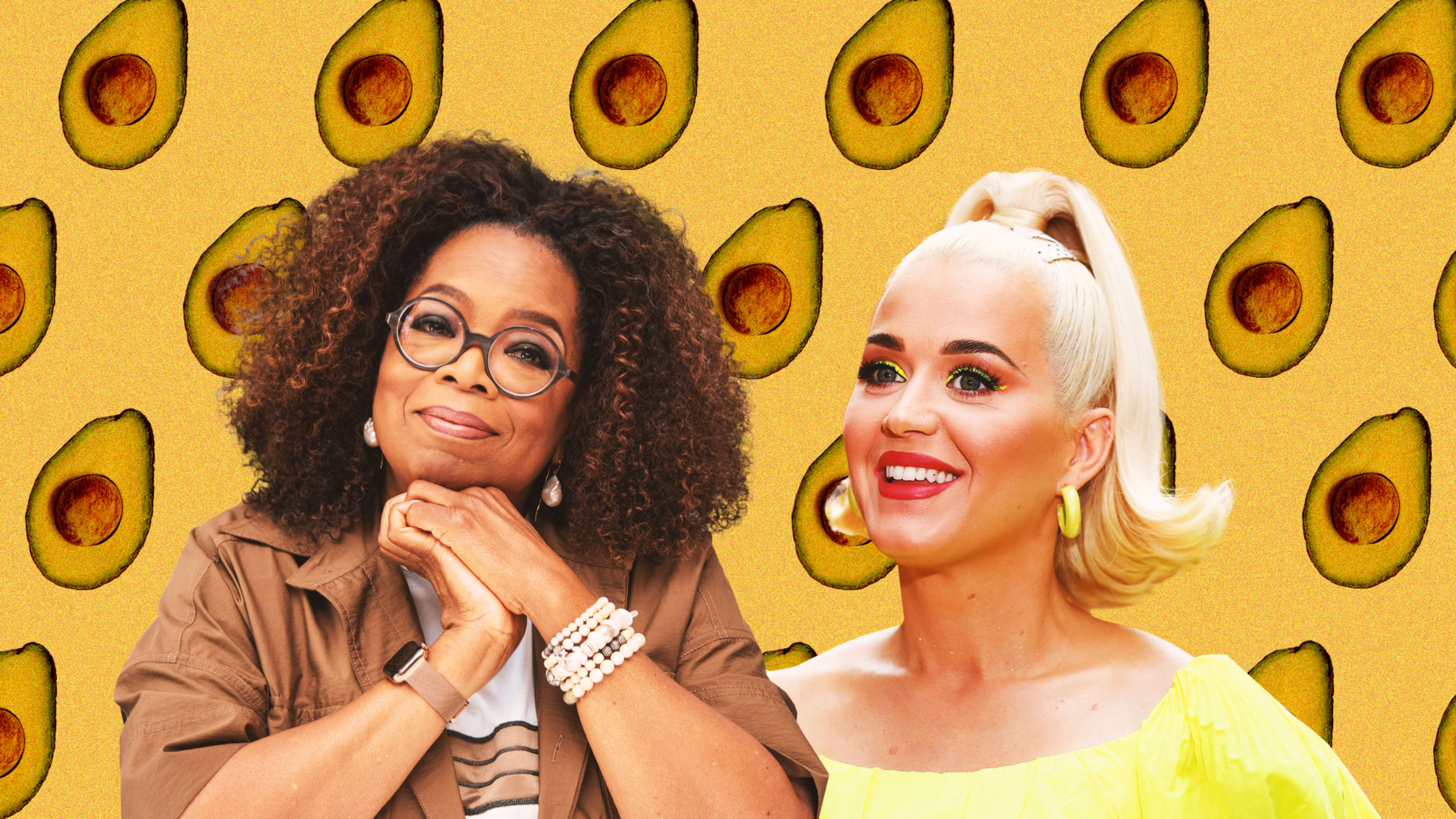Food science startups aren’t your typical magnet for celebrity investors. But today, Apeel Sciences, which creates a natural coating for the exterior of fruits and vegetables such as avocados, asparagus, and citrus to extend their shelf life and prevent food waste, is announcing a $250 million funding round in which Katy Perry and Oprah Winfrey are participating.
Apeel CEO James Rogers says that the opportunity to have Perry and Winfrey invest came via their inbound interest. “I never tracked back exactly know how they first heard about what we’re doing,” he admits, via a Zoom call from his living room, where a “35 and quarantined” banner celebrating his recent birthday hung in the background. “We’ve been very focused on the technology itself, but these are folks who want to join in our mission to help build a more participatory food system that’s based on nature. Although we were going about it in different ways, the end goal was the same.”
Perry, who has been a longtime champion of addressing and mitigating the effects of climate change and is also an investor in Impossible Foods (maker of the Impossible Burger), says she got involved after getting a tip from Chris Lyons, a partner at Andreessen Horowitz (the firm helped lead Apeel’s $33 million fundraising back in December 2016). “I met James, and I went to Apeel and toured the offices and the labs and saw the science in real time and was just so blown away I thought it was witchcraft—in the best of ways,” Perry says in a phone call. “This is one of the definitions of sustainability. [Apeel] has so many prongs to it. It makes economies. It gives farmers a chance. It gives us more options as a consumer. It takes produce shipping off of planes and back onto shipping containers, so it lowers our CO2 emissions.”
Winfrey’s environmental advocacy dates back to at least the 1990s, and her most prominent sustainable food investment to date has been True Food Kitchen, the healthy, seasonal restaurant chain. Her interest in Apeel, which is available at such grocers as Costco and Kroger, connects to her interest in both a healthier food system and planet. “I hate to see food wasted, when there are so many people in the world who are going without,” said Winfrey in a statement. “Apeel can extend the life of fresh produce, which is critical to our food supply and our planet, too.”
Approximately 11% of the greenhouse gas emissions created by the food system could be eliminated by the eradication of food waste, according to the World Wildlife Federation. A March 2020 study by Project Drawdown, a nonprofit organization dedicated to helping society achieve the goal of reducing rather than growing greenhouse gas emissions, states that solving food waste, along with embracing more plant-based diets, can have the single-greatest impact on reducing emissions. “Roughly a third of the world’s food is never eaten,” says the study, “which means land and resources used and greenhouse gases emitted in producing it were unnecessary.”
Asked what Perry and Winfrey might do to amplify Apeel and the work that it’s doing, Rogers isn’t sure at this point. “You know, I’m a scientist by training,” he says, “so my Instagram following is pretty small.” But Perry thinks Apeel doesn’t need a fire story on the ‘gram to grow. “They just are the magic,” she says, “and when something is such a solution, you don’t have to push it on people.”
Recognize your brand’s excellence by applying to this year’s Brands That Matter Awards before the early-rate deadline, May 3.
